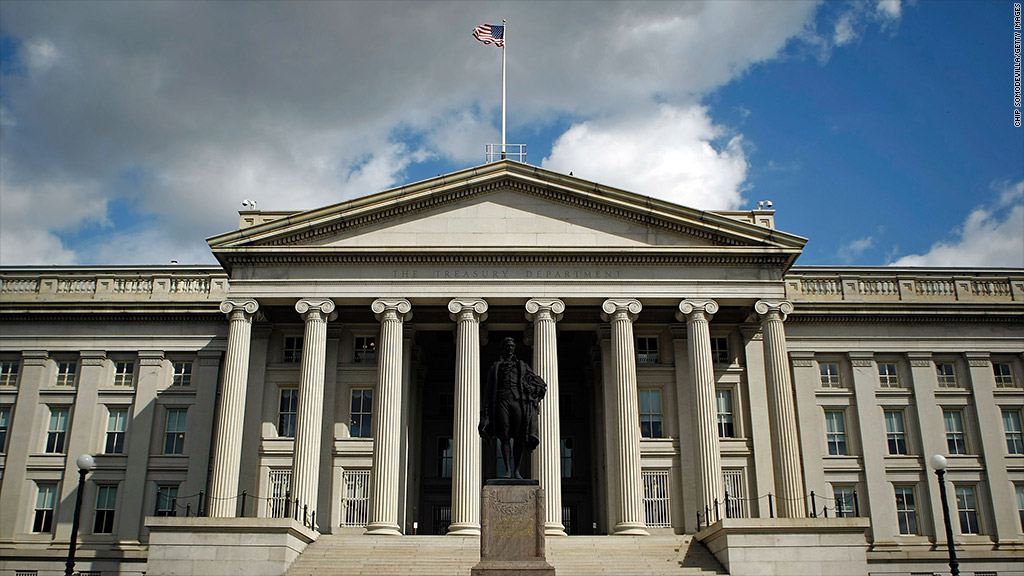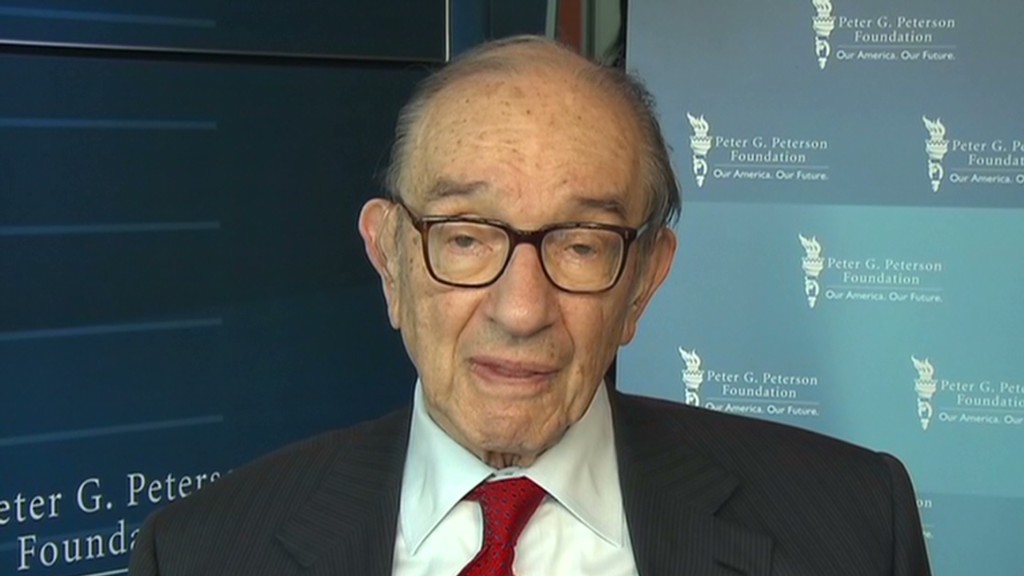
Congress must raise the debt ceiling before the end of February, and possibly sooner. If it doesn't, the United States risks defaulting on its payments to creditors.
That's the key takeaway from a new report released Tuesday by the Bipartisan Policy Center.
The group, an independent think tank, analyzed patterns in the Treasury Department's monthly cash flow and obligations to assess just how much time it has to continue paying the country's bills in full and on time if lawmakers don't raise the legal borrowing limit.
The debt ceiling is currently set at $16.394 trillion. By the end of last week, the debt subject to that limit had reached $16.268 trillion.
Treasury has been saying for months that it expects the country to hit the debt ceiling by the end of this year. But it says it can stave off the risk of default until sometime in early 2013 through the use of "extraordinary measures," such as temporarily using federal workers' retirement savings normally invested in government bonds.
Those extraordinary measures can provide about $197 billion of breathing room, which could cover the financing needs until sometime in February, the Bipartisan Policy Center estimates.
The United States doesn't bring in enough revenue to pay all its bills, so it borrows to make up the difference. Monthly deficits typically run between $100 billion to $125 billion.
Debt ceiling may collide with fiscal cliff
The February estimate is subject to some uncertainty, the report notes.
What the center calls "the X date" could be moved up to January if the country spends more than expected in the next two months -- for instance, for disaster relief from Hurricane Sandy. Or it could be delayed to March if the refunds typically paid out in February fall well below estimates.
In any case, if the debt ceiling isn't raised after the extraordinary measures run out, Treasury won't be allowed to borrow new money to make up for the gap between revenue and spending. And that means it will need to stiff someone. Indeed, a lot of someones.
Just whose payments would be delayed is unclear. But the failure by the world's largest economy to not pay vendors, Social Security beneficiaries or Treasury bond investors could hurt the economy and wreak havoc in the markets.
Congress knows this. But since the debt ceiling is often used as a political football to extract concessions, there is no guarantee that lawmakers will raise the borrowing limit in a timely manner.
During the contentious debate last year, Republicans insisted that spending cuts exceed any increase in the debt ceiling. Some even threatened to not raise the debt ceiling at all.
Congress raised it at the very last minute after passing the Budget Control Act, which called for $2.1 trillion in spending cuts over a decade. But the United States lost its AAA rating with Standard & Poor's and the stock market tumbled.

This year much will depend on how Congress handles the looming fiscal cliff -- a series of automatic spending cuts and tax increases that could push the economy back into a recession next year if lawmakers don't avert at least part of the cliff.
Some Washington observers think a debt ceiling increase will be part of any fiscal cliff deal. But others say it's possible it will be treated separately.
In that case, "the debt ceiling fight is going to be pretty significant next year," said Steve Bell, senior director of the economic policy project at the Bipartisan Policy Center.


